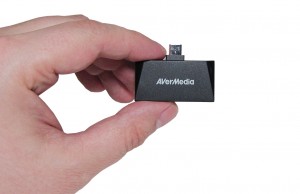What is going on in the British TV market? MediaSat’s correspondent proposes you a summary of the famous journalist (BBC, The Sunday Times) and current chairman of the Press Holdings group (The Spectator) Andrew Neil’s report on the SES Annual Research Event,17 March, 2015, London.
“The state of the broadcasting industry is good, it has never been better.
TV viewing fell by 5% – including playback within seven days. In 2014 it was 3.7 hours – where it was 10 years ago. Younger viewers are viewing less on TV sets but are the fastest adopters of other screens – laptops, tablets, mobile. BARB do not give inclusive figures for the other screens.
83% are viewing on traditional TV screen (84% in 2014, so statistically insignificant. 81% view within two days of having saved something so time shifting is limited.
Those watching digital TV stick close to the schedule and TV recorders have not destroyed live prime time TV.
Revenue is £5 billion and this is up 6% – the fifth consecutive year of growth – includes sponsorship of programme, advertising, etc. This is a rise of 5.5% and in 2015 the big challenge is to monetise and make other devices relevant. Other screens are becoming part of the new eco system. In the USA TV viewing in 18-34 age group has fallen 4% since 2012 and ratings are down 11% and this is having an impact on advertising.
Neilsen (ratings agency) has failed to keep up with how the viewing on connected screens is measured, they do not measure on the other screens, just the TV set in the home. Cited Late Show where 70% of audience are not included in the ratings as they view on ‘other’ screens.
BBC is still dominant broadcaster. Overshadowed by the up coming charger renewal that’s causing intense anxiety for the upper echelons of management. Nothing will happen this side of the general election and not this side of autumn.
A levy on all households is under discussion by the House of Commons Media Select Committee.
However 11,000 are still buying a black and white licence – price frozen since 2010. It is 145.50 for colour and this is thought of as high by viewers but it is the cost of a Starbuck’s Latter per day. A household levy might be considered post 2016 but I think it is likely to stay as it is. They’d like to extend it to catch-up TV, iplayer etc. and in this regard broadcasting has a way to go. BBC iplayer has 4 million accounts, ITV’s equivalent has £13 million.
Fewer programmes were sold over sees and productivity and oversees sales will have to improve. Even so the BBC needs to save £50 million. The world is watching whether it can take a channel and put it on line (BBC3)
ITV is still in transformation. It has had an over reliance on spot advertising as a major income stream in 2010 this accounted for 74% of income it is now 55%. Crozier has a target of 50% for 2015. With 712m this is the fifth year of double digit growth.
The production arm, ITV Studio, has revenues of £1 billion and is now a major producer of programmes. But it’s share of viewing audience is down 5%. The programme making budget is now £1 billion a year.
Sky has paid 7 billion for Skydeutcheland and Italia and is now truly multi platform with 20 million customers in five countries. 60 million still don’t take pay-TV so the ability to scale up is enormous. Spend 4.6 billion on content and make 11 billion in revenues.
Sky is managing OTT and mobile as well as it has all other technologies. It has extended its exclusive content with HBO effectively blocking others from getting anything that appears on Atlantic.
6,5 million h/holds in the UK and Ireland are connected through set-top boxes to the internet. There are 520 million downloads per quarter. Sky has got on the band wagon for quad play with 02. It is going cloud based rather than set-top box – as predicted by Bill Gates in 1995.
Sky is not frightened of technology. It is a very well run company.
Virgin
17 million capable of cable 2/3 of all British households. 3.7 m take cable TV and 1.3 broadband. Revenues are up and viewers are watching more. Its owner, Liberty, is famous for saying it is a distribution company and is not interested in content. It has a 50% stake in All3Media. There’s a rumour that Vodafone may take over Liberty.
BT TV offered sport free to all broadband customers but it needs a broader content strategy. It will only get so far using sport as a marketing tool. To be a serious rival to Sky it needs to look at non-sport content too.
OTT
Netflix: Breaking Bad, House of Cards
It has 57 million subscribers world wide and 3 million in the UK. It’s in 50 countries and is aiming for 200 in three years. It has $1.5 billion revenue and a market cap of 27 billlion. It’s investing in 320 hours of original programming but there is competition from Apple and Amazon Prime.
Channel 4 is in limbo and is struggling to break even although it knows more about its audience 16-24 than any other broadcaster. Channel 5? Perhaps Viacom will buy?
Predictions
Two dominant methods of delivery will be internet and satellite.
Twitter and Facebook are now the EPGs for obscure programming. The need to record and rerun channels will become obsolete.
TV will still be watched as it is now and will become more immersive with the advent of UHD. Viewing will become seamless between the TV screen, iPad, laptop, mobile.
BBC will get licence fee money as before, but would be lucky to get an increase. They’ll be regulated by OFCOM and the BBC Trust is unlikely to survive. It will be a unitary board and OFCOM the external regulator. And the Audit Office will also have input.
It will be a smaller BBC and more emphasis will be placed on global sales. BBC going digital will be an important move.
Broadcasting will not be a major issue for politicians.
ITV is in better shape now than it has been in a long time making it a take over target in the next five years largely due to its fantastic production arm.
Sky will continue to grow but needs to integrate Germany and Italy. It rolls well with the technological changes.
Netflix take over? Perhaps by Amazon or Apple but it is an additional choice not an alternative.
Channel 4 might be sold if the Tories win an overall majority it might just happen.
Overall all the broadcasting companies are in good shape. £6 billion of TV production money is in the UK and we do it well and sell it to other markets worldwide.
The impact of UHD will be huge – you only have to see the pictures to know that 3D is dead. People are mesmerised by UHD. Programmes are being made in 4k. 35mm movies are effectively 4k. The price of TV sets is coming down and it will make UHD a ‘must have’ – as big a rise as when Sky was introduced and colour television was introduced. UHD works well with big screens. The cost to the industry will be in equipment but consumers will buy. It will be challenging to make programmes in 4K”.


















